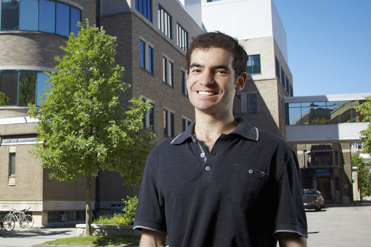Computer Science
Program Overview
The Department of Computer Science offers a graduate program leading to the Master of Science and Doctor of Philosophy in Computer Science. The programs consist of courses and research, conducted under the supervision of a faculty member.
Faculty in the Department of Computer Science are interested in a wide range of subjects related to computing, including programming languages and methodology, software engineering, operating systems, compilers, distributed computation, networks, numerical analysis and scientific computing, financial computation, data structures, algorithm design and analysis, computational complexity, cryptography, combinatorics, graph theory, artificial intelligence, neural networks, knowledge representation, computational linguistics, computer vision, robotics, database systems, graphics, animation, interactive computing, and human-computer interaction.
The Department of Computer Science also offers the MScAC in Applied Computing.
Quick Facts
| Domestic | International | |
|---|---|---|
| Application deadline | MSc, PhD: Fall 2025 entry 02-Dec-2024 | MSc, PhD: Fall 2025 entry 02-Dec-2024 |
| Minimum admission average | MSc: B+ in final year of bachelor’s PhD:B+ average in Master’s | MSc: B+ in final year of bachelor’s PhD:B+ average in Master’s |
| Direct entry option from bachelor's to PhD? | PhD: Yes (minimum A-minus average in courses in the relevant discipline) | PhD: Yes (minimum A-minus average in courses in the relevant discipline) |
| Is a supervisor identified before or after admission? | MSc, PhD: Before | MSc, PhD: Before |
| Is a supervisor assigned by the graduate unit or secured by the applicant? | MSc, PhD: Grad unit | MSc, PhD: Grad unit |
| Are any standardized tests required/recommended? | MSc, PhD: N/A | MSc, PhD: N/A |

“The program in machine learning has exceeded my expectations.”
- Ilya Sutskever
- Alumnus, PhD (2013), Computer Science
